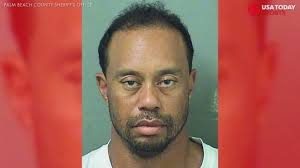Difference Between PCA And DUI
Driving a vehicle when you are under the influence of alcohol or another intoxicating substance is a punishable offence in Australia. Someone who is caught driving after consuming an intoxicating substance or a certain quantity of alcohol may face drink driving charges. Even if you were not driving at the time of getting caught, being in charge of a vehicle under influence can also invite drink driving charges.
Drink driving charges are of different kinds and motorists often complain that the laws are confusing. This generally happens because most of them do not understand the difference between DUI and PCA charges. Both these charges concern driving, but they are used in different circumstances.
Prescribed Concentration of Alcohol (PCA) charges
PCA charges apply when a police breath test proves that you are under influence. The breath test measures the amount of alcohol in your blood. Depending upon your blood alcohol concentration, PCA charges range from low to high.
Low charge PCA: This charge applies when the BAC (Blood Alcohol Concentration) is 0.05 to less than 0.08.
Mid-range PCA: This charge applies when the BAC is 0.08 to less than 0.15.
High range PCA: If your BAC at the time of getting caught is 0.15 or higher, you will be charged with high range PCA.
PCA offences may also be classified as special range PCA and novice range PCA. These charges apply to motorists caught with a BAC of less than 0.05. Motorists caught driving on a provisional driving license may be charged with novice range PCA. You don’t have to be seen driving recklessly to be charged with PCA. Different PCA charges carry different punishments from fine to imprisonment.
If you are charged with a high range PCA, sometimes it is possible to get it reduced to medium range. It is also possible to get the charges dropped, but this requires you to prove that your BAC at the time of driving was below 0.05.
The punishment for a PCA offence depends on several factors such as the circumstances of the incident and your driving history. If you caused an accident as a result of drunk driving and injured someone, the penalty will be more severe.
If you get convicted of a PCA offence, you face disqualification from driving a vehicle for a certain period of time. A first-time offence of the low range may lead to 3 months disqualification. More serious or repeat offences can lead to lifetime disqualification.
Driving under the influence (DUI) charges
DUI charges apply in cases where getting an accurate BAC reading is not possible. For example, if the breath test was done hours after you were caught driving under influence, the readings cannot be conclusive. In addition, the police are required to abide by standard procedures while conducting the breath test. Any failure on their part may also render the reading inconclusive.
While charging you with a DUI offence, your driving history and behaviour are considered as primary evidence. Accounts of police and witnesses are recorded for this purpose.
DUI offences can be applied in non-alcohol-related incidents as well. For example, someone caught driving under the intoxicating influence of a prescription medication may also get charged with this offence.
DUI charges and PCA charges have similar penalties. But if you get convicted of a DUI charge, you face a fine and a good behaviour bond in addition to disqualification from driving. In more serious cases, you could even get imprisoned.







